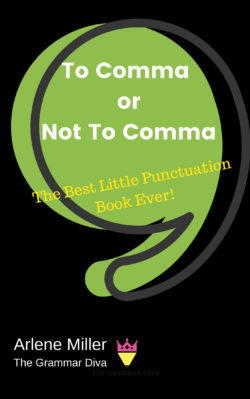 Word lovers: You are in for some fun.
Word lovers: You are in for some fun.
A few weeks ago I wrote the post A Dozen Fun Facts About Words and the Language. A few months ago I wrote a post called 20 Interesting Facts About the History of Our Language. Continuing in the series of language trivia, here are 25 more fun facts about words and the language:
- The most common letter in the English language is e. No surprise there. But did you know that one in eight of all letters written is e?
- The most common consonant in English is r, followed by t.
- The most common first letter of a word is s.
- Maine is the only state whose name consists of only one syllable.
- The longest word in the English language that has its letters in alphabetical order is almost.
- Bookkeeper and bookkeeping are the only two words with three consecutive double letters.
- The longest word that doesn’t repeat any of its letters is uncopyrightable.
- The word like is actually called a “crutch,” along with basically and actually.
- Crwth, a musical instrument once played in Europe, is the longest word without a vowel.
- Strengths is the longest word with only one vowel.
- On average, for every letter q written in the English language, there will be 56 e‘s.
- The compulsive desire to look at something that horrifies you, such as a horror movie or an injury, is called cacospectomania.
- To jakes is to walk mud into a house.
- An autohagiography is an autobiography that makes the subject appear better than they actually are.
- Use of the word selfie increased by 17,000% between 2012 and 2013.
- An aquabib is someone who chooses to drink water rather than alcohol.
- Callomaniacs are people who think they are more beautiful than they really are. (Are shallowmaniacs the only ones who care?)
- We know that a soliloquy is a solo speech. The proper name for speaking through clenched teeth is dentiloquy.
- The head of an asparagus is called the squib.
- GIF stands for “graphics interchange format,” and, according to its inventor, should be pronounced “jiff” and not “giff.”
- Referring back to #9, apparently some people don’t consider y a vowel and say that rhythm is the longest word without a vowel. However, I say y is obviously a vowel in rhythm.
- Skiing is the only word with a double i. Unless you also count Hawaii!
- Queueing is the only word with five vowels in a row.
- At the beginning of a game of Scrabble, you have roughly a 1 in 20,000 chance of picking the word senator out of the bag. I would think the same is true of Words with Friends. Anyone know?
- Apparently (and I have seen differing opinions on this), some think the longest word in the English language has 189,819 letters. It is the full chemical name of titin, a protein that controls the movement of muscles. I would spell it out here, but I don’t have room 🙂
Grammar Diva News and Such:
Looking for guest posters with something to say: If you have something to say that relates to the types of subjects on this blog, send me your ideas.
Check out my books! (only if you want to)
I had great fun speaking to the Small Business Development Center’s Boot Camp for young entrepreneurs aged 14 to 27. This past week I spoke to a group in Marin: 30 great high school kids, some of whom are already running their own businesses. I talk to them about the importance of writing and speaking competently. If you need a speaker or know someone who does, I love to talk about grammar, words, writing, language….so please contact me.
A huge thank you to Audrey Kalman for writing last week’s fabulous guest post!
My new book (cover and subtitle temporary) is now available for preorder on Kindle, iBooks, Kobo, and soon all e-book readers. Estimated release date is August 15 (or so).




The relative frequency of letters used in various languages was key to early cryptography. A simple transposition code (where, for instance, letters with substituted with numbers – the sort of thing you did in 5th grade) is easily cracked using statistical methods.
Tmesis is the only word in English that starts ‘tm’
There are, theoretically, several words in English that end in ‘eeee’. E.g if two parties come to an agreement, one will be the ‘agreer’ and the other the ‘agreeee’. (But I’ve never seen it used!!!
Thanks so much for that added information. And added trivia. Now I will have to look up tmesis!
Good reading
“y” and “w” can be both vowels and consonant , depending on where they are in the word.
An odd thing about “queue” is that if you take away the last 4 letters it is still pronounced the same.
Keep up the good work!
All good thngs,
Don
Thank you and thanks for the comment! I cannot think of a word where “w” is a vowel in the English language, but then words in the English language are generally from elsewhere. Can anyone?
No, but I remember in elementary school when learning the vowels, we were taught, “a, e, I, o, u, sometimes y & sometimes w.”
That is interesting! I remember learning the a,e,i,o,u and sometimes y — but never w.
If you count the y in “rhythm” as a vowel, it seems to me that you should also count the w in “crwth.” Both letters are normally consonants, but in this case are functioning as vowels. (There are other words of Welsh origin that also use w as a vowel, such as “cwm,” a geologic formation. The w is pronounced like “oo.”)
Thank you for the information. I really do not know how to pronounce “crwth.” In English, w is never a vowel, but in Welsh….
In ewe the w (and the rest of the letters sound like u). Perhaps that’s an example of w as a vowel.
The whole word sounds like a “u,” so I think it is just a an oddity of English.
My dear friend,
Apart from ever thanking you for your grammar suggestions and linguistic support, I found this post amazing. As a matter of fact, my attention was captured by “erwth” and tried to understand what kind of instrument it is, but ther is no refernce on line. Could you help me?
Thanks a lot and keep on supporting our thirst of knowledge.
Lix
( a good virtual friend from Italy)
Thanks for the nice comments! As a reader just informed me, the instrument is called a crwth. According to Wikipedia: crwth , also called a crowd or rote, is a bowed lyre, a type of stringed instrument, associated particularly with Welsh music and with medieval folk music of England, now archaic but once widely played in Europe.
I love to use the word “rhythm” when playing Hangman with elementary-age students. You know they always go through the vowels first. I usually win by hanging the man, even dressing him in clothes!
Fun blog post, Arlene.
Thanks! I always used to play Hangman with my seventh grade students too! Time left at the end of English class? Hangman! The toughest word is apparently jazz, which I did use.
Regarding #2: Are you sure about this? I remember memorizing the most frequently used letters in English — they’re the ones that used to appear occasionally as typography mistakes, in the days of mechanical typesetting: “etaoin” “shrdlu” were the first twelve letters in order. That would make “r” the fifth-most-frequently used consonant, way behind “t”.
I am not sure. I AM sure that sources vary.
Another fun post, Arlene!
Thanks so much, Thonie!
Sorry but ‘y’ is not a vowel just because you want it to be 🙂
Couldn’t find anything about he instrument but if you want unusual how about substituting bumbulum – two B(s), two M(s), and three U(s).
I just started thinking about Y when I read your comment. Just thinking about it for a minute, it seems that when Y begins the word it is generally a consonant. Other places in the word, it seems to function more as a vowel. Bumbulum is a very fine word for an instrument! Love it!
A racehorse can function as a cart horse, a cart horse cannot function as a racehorse – not sure what I’m trying to say there I got up in silly mode this morning 🙂
🙂
#9,” Erwth, a musical instrument once played in Europe, is the longest word without a vowel” e is not a vowel?
#23, “Queuing is the only word with five vowels in a row.” 5? or 4?
I don’t know what happened with ewrth, and I don’t know the proper spelling or if it exists — or where I got it. I apologize for that one. Does anyone know how that instrument is really spelled, or if it exists? Queueing has five vowels in a row if you spell it right:)
#9’s correct spellings: Crwth not Erwth.
If rhythm was to be accepted as the longest word without a vowel; rhythms should replace it as such.
Thank you for the correction on that musical instrument. I had handwritten that particular fact (most of them were typed), and I read my C as an E! And you are correct about rhythms. Thank you.
crwth – a Celtic stringed instrument.
Thank you so much! I had handwritten this one and must have thought my “c” was an “e.”